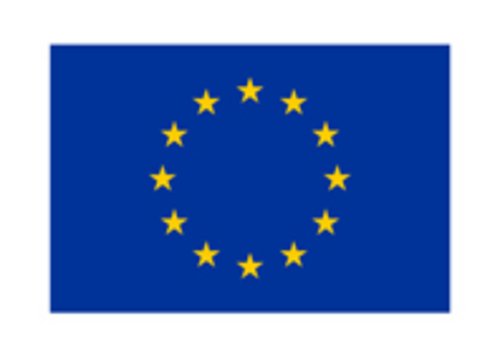SOLUTIONSplus
Integrated Urban Eletric Mobility Solutions in the Context of the Paris Agreement, the Sustainable Development Goals and the New Urban Agenda
SOLUTIONSplus is an international flagship project to support the global transition to sustainable mobility. In the context of the EU-funded SOLUTIONSplus project 45 partners and over 100 associated partners work together on transformative change towards sustainable urban mobility through innovative and integrated electric mobility solutions. The team of local authorities, knowledge and finance partners, industry, networks and international organizations will help boosting the availability of public and shared electric vehicles, foster the efficiency of operations and support the integration of different types of e-mobility in urban areas that meet the needs users and local conditions in Europe, Asia, Africa and Latin America. The project will implement e-mobility solutions for the first and last mile (electric two and three-wheelers), electric buses and minibuses, innovative charging solutions and multimodal journey planners in the partner cities.
The project brings together some of the leading networks, industry actors, knowledge and implementation organisations and highly motivated cities to test innovative e-mobility solutions that can help addressing these challenges. The consortium will develop, test and replicate innovative, intermodal e-mobility solutions to address the increased demand for personal and freight transport and the related challenges. The focus for the project will be on shaping energy use, providing access for all, creating business opportunities and developing concepts that can make a direct contribution to a low-carbon development through e-mobility. The emphasis on shared and public transport fleets of the project will also help address, among other things, urban congestion, access to jobs and services, and influence land use. A core element of the implementation concepts to be developed will be an integrated and balanced approach that addresses social, economic and environmental issues.
The project will work on the adaptation and integration of different solutions three key areas of urban mobility:
- Vehicles: The demonstration actions support the introduction and integration of electric buses, mini-buses, taxis, 2- and 3-wheelers in partner cities. The key focus for the international cooperation aspects will be on the collaboration between European industries and local companies, with a particular focus on last-mile connectivity. but also testing the viability of e-logistics options.
- Operation: The demonstration actions will also focus on e-mobility operations, including conventional and wireless, innovative charging solutions for different types of vehicles. The key focus for the international cooperation aspects will be on the provision and adaptation of innovative European charging solutions for different use-cases in the partner cities.
- Integration: The demonstration actions will foster intermodal route planning, eco-routing, ticketing, trip planning, navigation, demand-responsive service and dispatching and will provide a white-label app for the adaptation to the local contexts.
The project encompasses city level demonstrations to test different types of innovative and integrated e-mobility solutions, complemented by a comprehensive toolbox, capacity development and replication activities. Demonstration actions will be launched in Hanoi (Vietnam), Pasig (Philippines), Lalitpur/Kathmandu (Nepal), Nanjing (China), Kigali (Rwanda), Dar es Salaam (Tanzania), Quito (Ecuador), Montevideo (Uruguay), Madrid (Spain) and Hamburg (Germany) and replicated in twenty additional cities.
This project builds on the Urban Electric Mobility Initiative, which was launched by UN-Habitat and the Wuppertal Institute at the UN Climate Summit 2014. It also closely cooperates with a sister project funded by the Global Environment Facility (GEF) and managed by the International Energy Agency (IEA) and UN Environment. Together the two projects create a joint global urban e-mobility programme that will significantly boost the development of innovative solutions, their replication and scale-up. Through the regional training platforms, global working groups and local city support teams, the partners will develop highly effective and innovative approaches to urban e-mobility ensuring that mobility systems and interventions deliver on the Paris Agreement, meet the Sustainable Development Goals and address the New Urban Agenda.
This project has received funding from the European Union's Horizon 2020 research and innovation programme under grant agreement No H2020 LC-GV-05-2019.

Project team
Co-ordination
Staff
Client/sponsor
Project partner
- ABB BV
- Asociación Latinoamericana de Sistemas Integrados para la Movilidad Urbana Sustentable (SIMUS)
- Centro Premio Nobel Mario Molina Para Estudios Estrategicos Sobre Energia Y Medio Ambiente Chile Limitada (CMM CHile)
- Centro Ricerche Fiat S.c.p.A.
- City of Kigali
- City of Pasig
- Clean Air Initiative for Asian Cities (CAI-Asia)
- Coopération pour le Développement et l'Amélioration des Transports Urbains et périurbains
- DART
- Danmarks Tekniske Universitet
- Deutsches Zentrum für Luft- und Raumfahrt e.V. (DLR)
- Dynniq Nederland BV
- Empresa Municipal de Transportes de Madrid SA (EMT Madrid)
- European Road Transport Telematics Implementation Coordination Organisation - Intelligent Transport Systems & Services Europe
- Fier BV
- Hamburger Hochbahn AG
- Hanoi Department of Transport
- ICLEI - Local Governments for Sustainability EV
- IDIADA Automotive Technology SA
- Institute for Transportation and Development Policy (ITDP)
- Intendencia de Montevideo
- International Council on Clean Transportation (ICCT)
- Kompetenzzentrum - Das virtuelle Fahrzeug Forschungsgesellschaft mbH
- Li Wan (China Link)
- Lindholmen Science Park AB
- Municipio del Distrito Metropolitano de Quito
- Netherlands Organization for Applied Scientific Research (TNO)
- Pluservice SRL
- Promoting Operational Links with Integrated Services (POLIS)
- Rupprecht Consult - Forschung und Beratung GmbH
- Sajha Yatayat Sahakaari Sansthaa Limited
- Stichting Partnership on Sustainable, Low Carbon Transport Foundation (SLcCaT)
- T-Systems International GmbH
- Technische Universität Berlin
- Union Internationale des Transports Publics
- United Nations Environment Programme (UNEP)
- United Nations Human Settlements Programme (UN-Habitat)
- University of Transport Technology (UTT)
- Urban Electric Mobility Initiative (UEMI)
- VTT Technical Research Centre of Finland
- Valeo Embrayages SAS (Valeo SVA)
- Valeo Management Services
- Volvo Technology AB
- Zaragoza Logistics Center (ZLC)
